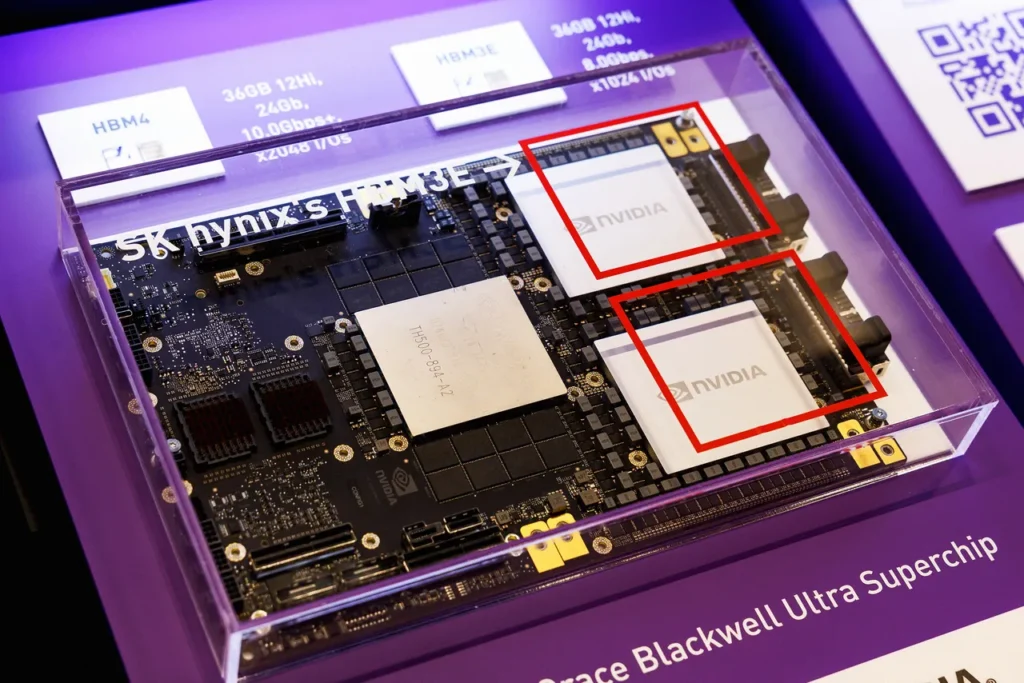US authorities allege four people based in Florida, Alabama, and California conspired to illegally ship supercomputers and hundreds of Nvidia GPUs to China as recently as July. The charges, which were unsealed in federal court on Wednesday, are part of a wider government effort to crack down on the smuggling of advanced AI chips to China.
Over the past few years, the US has introduced a series of export control rules designed to prevent Chinese organizations from acquiring computer chips that have become popular for developing AI chatbots. The restrictions aim to slow China in what US officials have described as a race to develop powerful AI systems, including surveillance tools and autonomous weapons. Some Chinese companies have been forced to make do with older or less capable chips, but others have allegedly turned to smugglers.
The new indictment alleges that Hon Ning Ho, Brian Curtis Raymond, Cham Li, and Jing Chen worked together to buy Nvidia chips through a sham real estate company in Florida and then resold them to Chinese companies. The hardware was allegedly shipped to China using doctored customs paperwork by way of Thailand and Malaysia, two countries that US regulators have identified as hot spots for chip smuggling.
Prosecutors allege that the defendants exported about 400 Nvidia A100 GPUs and attempted to smuggle about 50 of Nvidia’s newer chips, known as the H200. The defendants are also accused of trying to export about 10 Hewlett Packard Enterprise supercomputers containing Nvidia H100 chips.
Two undisclosed Chinese companies allegedly paid the defendants nearly $3.9 million in total for their efforts, according to the indictment, which was first reported by Court Watch.
“This is an extremely serious offense. At the time these were being exported, these were Nvidia’s most advanced chips,” federal prosecutor Noah Stern told magistrate judge Kandis Westmore in an Oakland, California courtroom on Thursday. Stern explained that the semiconductors could be used by the Chinese government in military, surveillance, disinformation, and cybersecurity applications.
Stern said that authorities arrested the four defendants on Wednesday. He said that Ho, whom he described as the ringleader, is now in custody along with Chen and Li. Raymond, who ran a company reselling Nvidia chips, is not being detained, Stern said. Amy Filjones, a spokesperson for the US attorney’s office in Tampa, Florida, said Raymond has been released on bond.
Stern said text messages obtained by authorities show Li boasting about how his father “had engaged in similar business on behalf of the Chinese Communist Party.” Stern alleged the messages also show Li, who works at a hardware distribution company, was aware through news articles he shared that the Nvidia chips were subject to export controls. “He explained that his father had ways to import them,” Stern said, again citing Li’s text messages.
Stern told the court that Li “did admit to various facts” during questioning by federal agents on Wednesday that implicated him.
The defendants face various charges related to violating export control laws and up to 20 years in prison.
Ho and Raymond did not immediately respond to requests for comment sent to LinkedIn accounts purportedly belonging to them. Public defenders for Chen and Li declined to comment.
Nvidia spokesperson John Rizzo said in a statement that “even small sales of older generation products on the secondary market are subject to strict scrutiny and review” and that “trying to cobble together datacenters from smuggled products is a nonstarter, both technically and economically.”
Corvex, an AI cloud computing business Raymond consulted for, said in a statement that it had rescinded a job offer for him to join the company full time and that it had no connection to the alleged wrongdoing.
Earlier this year, the US Department of Commerce was reportedly considering restricting the sale of advanced chips to Malaysia and Thailand in an effort to curb chip smuggling, but the regulations have yet to be finalized. The Commerce Department did not immediately respond to a request for comment.
Magistrate Judge Westmore ordered Li to hire an attorney because she said he had significant equity in a San Leandro, California home and other assets, making him ineligible for a public defender. The magistrate also set a hearing for Tuesday to decide whether Li is a significant flight risk and should continue to be detained. He holds a US green card and Hong Kong citizenship.
Li, wearing glasses, flipflops, and a black windbreaker, nodded in response to some of Westmore’s statements but did not speak. Kaitlyn Fryzek, his temporary public defender, said Li is planning to marry a US citizen. “His incentive is to stay and get married to his fiancée,” Fryzek said.
The post Four Indicted In Alleged Conspiracy To Smuggle Supercomputers and Nvidia Chips to China appeared first on Wired.




